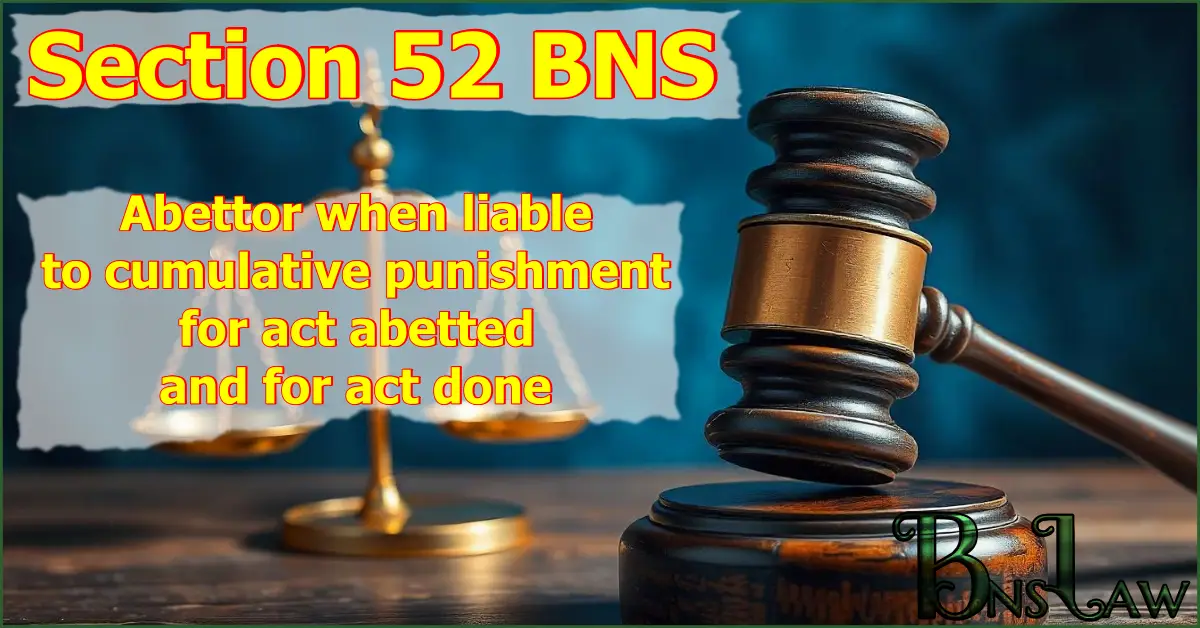Section 52 BNS | BNS 52
If the act for which the abettor is liable under section 51 is committed in addition to the act abetted, and constitute a distinct offence, the abettor is liable to punishment for each of the offences.
Illustration
A instigates B to resist by force a distress made by a public servant. B, in consequence, resists that distress. In offering the resistance, B voluntarily causes grievous hurt to the officer executing the distress. As B has committed both the offence of resisting the distress, and the offence of voluntarily causing grievous hurt, B is liable to punishment for both these offences; and, if A knew that B was likely voluntarily to cause grievous hurt in resisting the distress, A will also be liable to punishment for each of the offences.
READ OTHER SECTIONS OF CHAPTER IV — OF ABETMENT, CRIMINAL CONSPIRACY AND ATTEMPT
FAQs of BNS Section 52
-
52 BNS punishment and fine
Punishment and fine under Section 100 of the BNS: Same as for offence abetted.
-
52 BNS cognizable or not
According as offence abetted is cognizable or non-cognizable.
-
52 BNS bailable or not
According as offence abetted is bailable or non-bailable.
-
52 BNS trial court
Court by which offence abetted is triable.
Important Points
- Cognizable Offences: These are offences where a police officer can arrest a person without a warrant.
- Non-Cognizable Offences: These are offences where a police officer cannot arrest a person without a warrant.
- Bailable Offences: These are offences where the accused can get bail from the police station itself. All bailable offences are listed in the First Schedule of the Bharatiya Nagarik Suraksha Sanhita (BNSS).
- Non-Bailable Offences: Offences in which bail is not granted directly from the police station but after hearing the case in the court, the judge decides when bail will be granted. All non-bailable offences are listed in the first schedule of the Bharatiya Nagarik Suraksha Sanhita (BNSS).
- In the above FAQ, “trial court” means the court that has jurisdiction to try the offence.
- In the above FAQ, the expression “Magistrate of the first class” and “Any Magistrate” does not include Executive Magistrates.
Read other Sections of the BNS
Reference Link: New Criminal Laws (BNS), Ministry of Home Affairs







